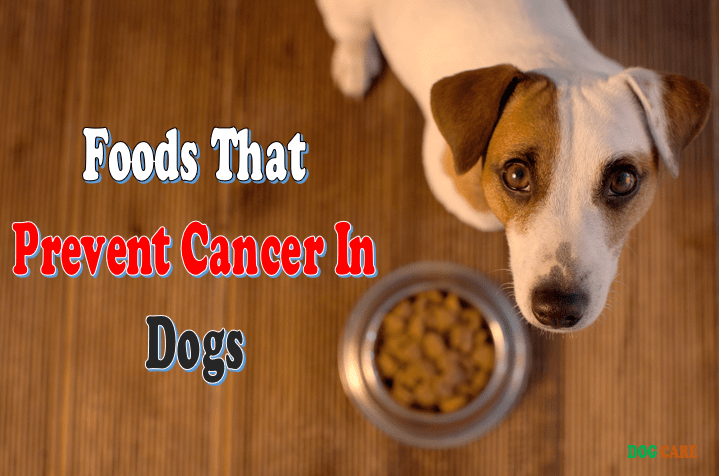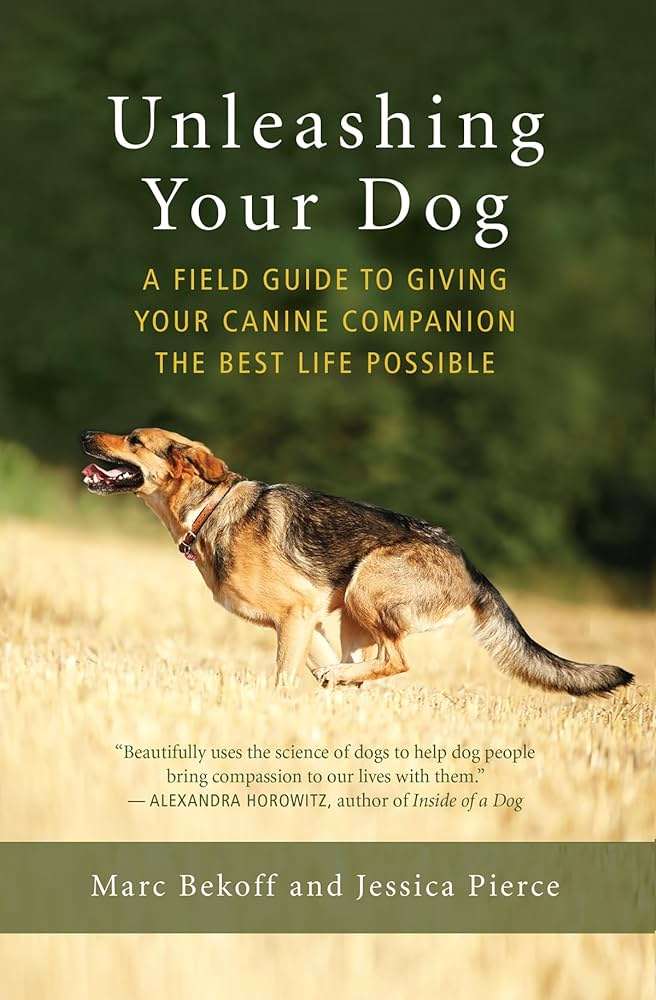Foods That Prevent Cancer in Dogs include blueberries, broccoli, carrots, pumpkin, and turmeric. These foods contain powerful antioxidants and anti-inflammatory properties that can help fight and prevent cancer in dogs.
Adding these foods to your dog’s diet can significantly contribute to their overall health and well-being.

Understanding Cancer In Dogs
Discover the power of foods that can help prevent cancer in dogs. Learn more about their benefits and how they can support your furry friend’s overall health and well-being.
Cancer is a devastating disease that affects not only humans but our furry friends as well. Dog owners often find themselves grappling with the heart-wrenching reality of their beloved pets being diagnosed with cancer. To effectively tackle this issue, it is crucial to have a comprehensive understanding of what cancer in dogs entails.
What Is Cancer In Dogs?
Cancer in dogs is an abnormal growth of cells that invade surrounding tissues and organs, often spreading to different parts of the body. The uncontrolled proliferation of these cells interferes with normal bodily functions, leading to severe health complications. Just like in humans, cancer can affect various organs and body systems in dogs.
Common Types Of Cancer In Dogs
Dogs can develop several types of cancer, each posing its own set of challenges. Understanding these common types of cancer can help dog owners remain vigilant and proactive in their pet’s well-being. Some of the most prevalent types of cancer in dogs include:
| Lymphoma: | Lymphoma is a cancer of the lymphatic system, which plays a crucial role in immune function. It is one of the most common types of cancer in dogs, resulting in swollen lymph nodes, weight loss, and lethargy. |
| Mammary Cancer: | Mammary cancer primarily affects unspayed female dogs and is characterized by the development of malignant tumors in the mammary glands. Early detection and prompt treatment are critical in combating this form of cancer. |
| Osteosarcoma: | Osteosarcoma is a bone cancer that predominantly affects larger dog breeds. It typically manifests as lameness, swelling, and pain, often in the long bones of the legs. Prompt diagnosis and intervention are essential for managing this aggressive cancer. |
| Bladder Cancer: | Bladder cancer affects the lining of the bladder, leading to urinary difficulties, blood in the urine, and increased frequency of urination. Though less common, it necessitates early detection to ensure appropriate treatment. |
| Melanoma: | Melanoma is a type of skin cancer that can also affect the mucous membranes of the mouth, nose, and digits in dogs. Early detection and removal of tumors are vital in managing this aggressive cancer. |
While these are just a few of the many types of cancer that can affect our furry friends, it is essential to remember that early detection, proper veterinary care, and a proactive approach are crucial in providing the best possible chance for treatment and recovery.
The Role Of Nutrition In Canine Cancer Prevention
Proper nutrition plays a crucial role in preventing cancer in dogs. Just like humans, dogs can also benefit from a balanced diet that includes nutrient-rich foods known to have cancer-fighting properties. By providing your furry friend with the right combination of vitamins, antioxidants, and minerals, you can help strengthen their immune system and reduce the risk of cancer development. In this article, we will delve into how nutrition affects cancer development in dogs and the importance of a balanced diet. Let’s explore!
How Nutrition Affects Cancer Development
What dogs eat has a direct impact on their overall health and well-being, including their susceptibility to cancer. Certain nutrients and bioactive compounds found in specific foods have been linked to cancer prevention in dogs. For instance:
- Antioxidants: Foods rich in antioxidants, such as blueberries, spinach, and kale, can neutralize harmful free radicals that can damage cells and increase the risk of cancer.
- Omega-3 fatty acids: Fish oils and certain plant-based oils like flaxseed oil contain omega-3 fatty acids, which have anti-inflammatory properties and may help lower the risk of cancer.
- Phytochemicals: These plant-based compounds found in colorful fruits and vegetables have been shown to exhibit anticancer effects, protect cells from DNA damage, and slow down the growth of cancer cells.
Importance Of A Balanced Diet
Achieving a balanced diet is crucial in ensuring that your dog receives all the necessary nutrients to support their overall health and reduce the risk of cancer. Consider including the following components in your dog’s diet:
- Protein: High-quality protein sources like lean meats, fish, and eggs provide essential amino acids needed for healthy cell growth and repair.
- Complex carbohydrates: Opt for whole grains, fruits, and vegetables as sources of carbohydrates, providing valuable fiber, vitamins, and minerals.
- Healthy fats: Incorporate fats from sources like fish oil, olive oil, and avocados to provide omega-3 fatty acids that support immune function and help reduce inflammation.
- Vitamins and minerals: Ensure that your dog’s diet includes a variety of fruits and vegetables to provide a range of vitamins and minerals that promote overall health.
Remember, while nutrition is an essential component of cancer prevention in dogs, it should not replace regular veterinary check-ups and early detection screenings. By combining a balanced diet with regular veterinary care, you can provide your furry friend with the best possible chance at a healthy and cancer-free life.
Top Cancer-fighting Foods For Dogs
When it comes to our canine companions, keeping them healthy is a top priority. One important aspect of their wellbeing is preventing cancer, a disease that can affect dogs just as it does humans. While there’s no guaranteed way to prevent cancer, incorporating cancer-fighting foods into your dog’s diet can potentially reduce the risk and support their overall health. Here are some top cancer-fighting foods for dogs.
Cruciferous Vegetables
Cruciferous vegetables are excellent additions to your dog’s diet as they provide a wide range of health benefits, including cancer prevention. Vegetables like broccoli, kale, cauliflower, and Brussels sprouts are rich in vitamins, minerals, and potent antioxidants. These antioxidants help neutralize harmful free radicals that can damage cells and potentially lead to cancer. Including small portions of these vegetables in your dog’s meals can significantly contribute to their overall health and well-being.
Berries And Other Antioxidant-rich Fruits
Just like humans, dogs can also benefit from antioxidant-rich fruits, especially berries. Blueberries, strawberries, cranberries, and raspberries are packed with cancer-fighting properties. These fruits are high in vitamins, fiber, and antioxidants that can help protect cells from oxidative stress. Including a handful of berries or other antioxidant-rich fruits in your dog’s diet as occasional treats or mixed into their meals can provide numerous health benefits.
Fish And Omega-3 Fatty Acids
Fish, such as salmon and sardines, are not only a great source of lean protein but also rich in omega-3 fatty acids. These fatty acids have powerful anti-inflammatory properties and are known to reduce the risk of certain cancers. Omega-3 fatty acids can also support your dog’s immune system and promote a healthy coat and skin. Incorporating fish into your dog’s diet a few times a week can provide essential nutrients and potential cancer-fighting benefits.
Turmeric And Other Spices
Turmeric is a spice that has gained significant attention for its potential health benefits, including cancer prevention. Curcumin, the active compound in turmeric, is known for its powerful anti-inflammatory and antioxidant properties. Adding a pinch of turmeric to your dog’s food can provide a flavorful twist while potentially reducing the risk of certain cancers. Additionally, other spices like cinnamon and ginger also offer health benefits and can be incorporated into your dog’s diet in moderation.
Leafy Greens
Leafy green vegetables, such as spinach, kale, and romaine lettuce, are packed with essential vitamins, minerals, and chlorophyll. These vegetables contain antioxidants that can help prevent cell damage and reduce the risk of certain cancers. Including a small portion of leafy greens in your dog’s diet can provide added nutritional value and contribute to their overall health.Incorporating Cancer-preventing Foods Into Your Dog’s Diet
Ensuring a nutrient-rich diet is crucial for the overall health and well-being of our canine companions. While there is no surefire way to prevent cancer in dogs, certain foods have been found to have potential cancer-fighting properties. Including these foods in your dog’s diet can be an excellent way to promote their health and potentially reduce the risk of cancer. However, it’s important to consult with a veterinarian before making any major dietary changes for your furry friend.
Consulting With A Veterinarian
Before incorporating cancer-preventing foods into your dog’s diet, it is crucial to seek advice from a qualified veterinarian. They can provide valuable insights and recommendations based on your dog’s specific needs. A veterinarian will assess your dog’s current health condition, age, breed, and any existing dietary restrictions or allergies. They will guide you on the suitable foods to include and help you determine the appropriate portion sizes for your pup.
Gradual Dietary Changes
Introducing new foods gradually is key to ensuring your dog’s gastrointestinal system adjusts comfortably. Abrupt changes can lead to digestive issues such as diarrhea or upset stomach. Start by incorporating small amounts of cancer-preventing foods into their regular meals, gradually increasing the quantity over time. This gradual approach will allow your dog’s body to adapt to the new foods while minimizing any possible adverse reactions.
Meal Ideas And Recipes
Now that you have consulted with a vet and are ready to make dietary changes, let’s explore some meal ideas and recipes that incorporate cancer-preventing foods:
| Cancer-Preventing Food | Meal Ideas |
|---|---|
|
Frequently Asked Questions Of Foods That Prevent Cancer In Dogs
What Are Some Foods That Can Help Prevent Cancer In Dogs?
Some foods that can help prevent cancer in dogs include broccoli, blueberries, turmeric, and sweet potatoes. These foods are rich in antioxidants and can help boost your dog’s immune system and reduce the risk of cancer.
How Can Diet Play A Role In Preventing Cancer In Dogs?
Diet plays a crucial role in preventing cancer in dogs. A balanced and nutritious diet can strengthen the immune system, reduce inflammation, and provide the necessary nutrients to fight off cancer cells. Avoiding processed foods and feeding fresh, whole foods can help prevent cancer in dogs.
Is There Any Evidence To Support The Claim That Certain Foods Can Prevent Cancer In Dogs?
While there is limited scientific evidence, some studies suggest that certain foods can help prevent cancer in dogs. These include foods rich in antioxidants, such as berries and leafy greens, as well as those with anti-inflammatory properties, like turmeric. However, it is important to consult with your veterinarian before making any significant changes to your dog’s diet.
Conclusion
To ensure your canine companion’s health and well-being, incorporating cancer-preventing foods into their diet is essential. By opting for natural and fresh ingredients like broccoli, blueberries, turmeric, and fish, you can effectively support their immune system and reduce cancer risks.
Remember, a wholesome diet plays a vital role in safeguarding your furry friend from potential health issues. So, start today and give them the best chance at a long, healthy life.


